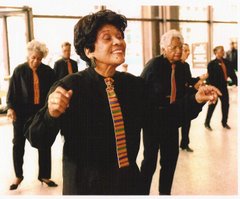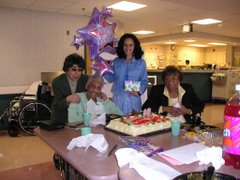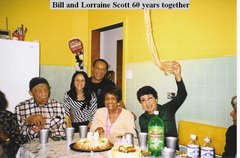
Here is a great article and list of warning signs your elder needs help. (See source below)
The real challenge facing elders and their loved ones, is the ability to differentiate normal aging, from the warning signs that something may be wrong, requiring some form of intervention. It is important to note that we all have a bad day - our hair in uncombed, we forget an appointment, or we feel depressed; however a recurrent pattern may indicate a problem.
We are providing a list of some questions that may help you evaluate if there is a potential problem, but this list is only meant to serve as a guide. If a problem is suspected, the elder needs to be seen by a professional who can conduct a complete medical evaluation and a geriatric assessment, and help determine the best way to proceed.
1. Is the person experiencing any significant vision, hearing, or memory loss?
2. Is the person experiencing any anxiety, depression, or phobias?
3. Is the person oriented to time, place, and person?
4. Is the person able to read, write, and use the telephone without difficulty?
5. Is the person able to use public transportation, or arrange to take a cab?
6. Is the person able to perform routine housekeeping tasks (e.g. laundry, cooking, cleaning)
7. Is the person able to handle maintenance needs?
8. Is the person able to prepare meals and eat regularly?
9. Is the person able to bath independently?
10. Is the person able to dress appropriately?
11. Is the person able to manage their own finances?
12. Is the person able to handle their own banking and financial needs?
13. Is the person able to write checks & balance their checkbook?
14. Is the person able to exercise good judgment, and make sound decisions?
15. Is the person able to manage their own medications?
16. Is the person able to go shopping for groceries?
17. Is the person able to maintain relationships with family and friends?
18. Is the person able to walk, climb stairs, and remain standing?
19. Is the person able to easily and safely get up and down from a chair?
20. Is the person able to fall asleep and stay asleep?
21. Is the person able to remember family names, and appointments?
22. Is the person able to safely see & operate appliances?
23. Is the person able to drive?
24. Is the person able to hear the phone ring, and understand a conversation?
25. Is the person able to participate in leisure activities?
26. Is the person expressing any issues or concerns?
27. Is the person experiencing a sudden weight loss or gain?
28. Is the person experiencing any health concerns?
29. Is the person experiencing any bruises or cuts?
30. Is there any evidence that the person is the victim of fraud or abuse?
from caregiverresourcecenter.com











.jpg)